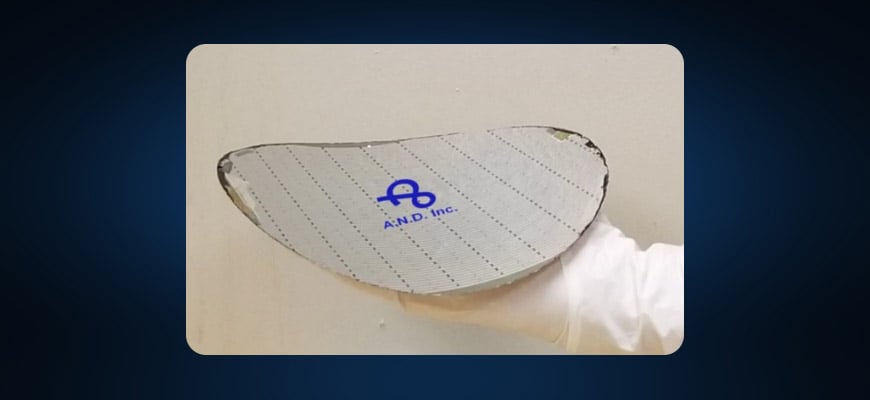
Teledyne FLIR Defense Earns $31M Supply Contract: Week in Brief: 09/1/23
 Teledyne FLIR Defense signed a $31 million contract with Norwegian defense supplier Kongsberg Defense and Aerospace to provide its Cerberus XL mobile counter-unmanned aerial system (UAS) for Ukraine. Cerberus XL combines an advanced thermal/visual imaging system with radar sensors with a mobile platform to rapidly locate and track UAS targets. Kongsberg then feeds information from Cerberus into its remote weapons station to disable and defeat the threat. Kongsberg recently signed an agreement with the International Fund for Ukraine to deliver counter-drone systems. The Teledyne FLIR agreement includes delivery of the surveillance platforms as well as software, spares, support, and training.
Teledyne FLIR Defense signed a $31 million contract with Norwegian defense supplier Kongsberg Defense and Aerospace to provide its Cerberus XL mobile counter-unmanned aerial system (UAS) for Ukraine. Cerberus XL combines an advanced thermal/visual imaging system with radar sensors with a mobile platform to rapidly locate and track UAS targets. Kongsberg then feeds information from Cerberus into its remote weapons station to disable and defeat the threat. Kongsberg recently signed an agreement with the International Fund for Ukraine to deliver counter-drone systems. The Teledyne FLIR agreement includes delivery of the surveillance platforms as well as software, spares, support, and training.
Above: Cerberus XL counter-drone surveillance platform. Courtesy of Teledyne FLIR.
AUSTIN, Texas — Applied thermal energy developer PulseForge Inc. (PFI) collaborated with semiconductor device architecture maker Applied Novel Devices to enhance and reduce costs associated with high-performance packaging solutions. The partnership involves testing Applied Novel Device’s metal oxide silicon field effect transistor (MOSFET) wafers with PFI’s photonic debonding process; wafers were temporarily bonded to PFI’s reusable inorganic light-absorbing layer-coated glass carrier and debonded using PFI’s photonic debonding tool. Post-cleaning, all the MOSFETs demonstrated the same performance as they did before going through a temporary bonding and debonding process, the collaborators said.

Sub-30-µm-thick mechanically rugged 8-in. wafer. Courtesy of PulseForge.
WASHINGTON, D.C. — The U.S. Department of Energy announced $24 million in funding for three collaborative projects in quantum network research. The funding covers research led by the Argonne National Laboratory on a heterogeneous, full-stack approach in co-designing scalable quantum networks; research led by Oak Ridge National Laboratory on the development of architecture and protocols for a performance-integrated scalable quantum internet; and research led by the Fermi National Accelerator Laboratory for the development of advanced quantum networks for scientific discovery.
TUSCON, Ariz. — Ultrashort pulse laser developer and directed energy company Applied Energetics was awarded a $2 million, two-year contract from the Department of the Navy, Office of Naval Research, to develop a high-peak and high-average-power ultrashort pulse optical system. The system is expected to demonstrate effects compatible with multiple Navy platforms and missions with an attractive size, weight, and power-cooling footprint.
WASHINGTON, D.C. — The U.S. Department of Energy (DOE) announced 106 R&D grants totaling $126 million for 90 different small businesses whose projects will address multiple mission areas across the department, including clean energy and decarbonization, cybersecurity and grid reliability, fusion energy, and nuclear nonproliferation. Funded through the DOE’s Small Business Innovation Research and Small Business Technology Transfer programs, the selections are for phase II research and development of projects that either demonstrated feasibility for innovations during phase I or are continuing prototype and process development from previous phase II awards.
BEVERLY, Mass. — Silicon-based photonics technology company SIONYX acquired American Imaging Engineering (Amigen), a thermal imaging system provider. The move adds Amigen founder and president Jeffrey Lee to the combined company, as CTO of SIONYX’s commercial products division. SIONYX products include those that support night-vision applications.
REDMOND, Wash. — Micro-electromechanical systems (MEMS)-based solid-state automotive lidar and advanced driver assistance solutions developer MicroVision entered into a $35 million at-the-market (ATM) equity offering agreement with Craig-Hallum Capital Group LLC. MicroVision will use the net proceeds from the ATM to support investments that may be required to scale production capabilities with OEM-approved manufacturing partners, accelerate application-specific integrated circuit development, build out inventory to support direct sales, advance execution of its go-to-market strategy for both of its MAVIN and MOVIA sensor/perception products, and fund other general corporate purposes.
MÜNSTER, Germany — Pixel Photonics, a Westfälische Wilhelms-Universität Münster spinout, raised €1.45 million to further develop its single-photon detection and counting technology. Pixel Photonics’ technology targets quantum communications, quantum computing, and medical technologies.
Published: September 2023